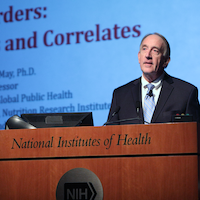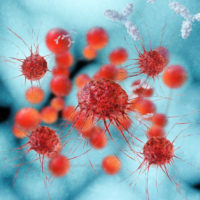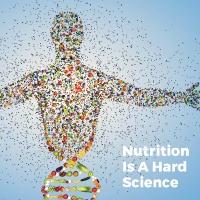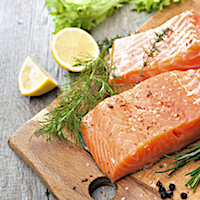News
Our research not only influences the scientific community, but the general public as well. We strive to share our discoveries with everyone. Read some of our latest articles on what is happening at the Nutrition Research Institute.
January Faculty Focus: Philip May, PhD
January 11, 2019 – “I’ve been called ‘tenacious’,” says Philip A. May, PhD, with a hint of humor. It’s an understatement for the man who relentlessly pursues data that shed light on important public health issues across the United States and around the globe. May, professor of nutrition at the UNC Nutrition Research Institute (NRI) and in the Department of Nutrition at the Gillings School of Global Public Health at UNC-Chapel Hill, has been a demographer and epidemiologist for the better part of 50 years. He calls his style of research “shoe-leather” epidemiology, meaning that he gathers information for studies by getting out in the field and immersing himself in communities to really know the people in his studies. For nearly 30 of those years, May’s focus has been on learning about the often-dire effects and alarmingly high prevalence of fetal alcohol exposure.
Women’s Health, Preconception Nutrition, and the Right to Choose
December 16, 2018 – If you’ve ever been around a pregnant woman, you’ve probably heard her mention something about food cravings. Or she’s mentioned that she won’t drink coffee or eat Oreos because they are “bad for the baby.” Food is a hot topic during pregnancy because of how it can drastically affect the developing baby. But how many times have you heard a woman mention that she is eating healthier because she is going to try to get pregnant?
December Faculty Focus: Susan Sumner, PhD
December 15, 2018 – Through the ages, science has often been in the company of poetry. They came together recently when Susan Sumner, PhD, described how she got her start in Biomarker Discovery using spectroscopic methods as an undergraduate at North Carolina State University (NCSU): “I found it exciting to envision molecules dancing in multidimensional space in response to applied physical factors such as magnets, radio frequency pulses, or electric fields.”
NRI Faculty Member Receives Prestigious NIAAA Award
December 17, 2018 – Philip A. May, PhD, has received the 2018 Mark Keller Award bestowed by the National Institute on Alcohol Abuse and Alcoholism (NIAAA) at the National Institutes of Health (NIH).
Starving Cells May Lead to New Cancer Treatments
November 20, 2018 – Nutrient availability regulates cell metabolism, growth, and survival. When nutrients are in short supply, cells can pause their growth or even eliminate themselves through a process known as programmed cell death, thereby protecting the health of the organism as a whole. If nutrient deprivation happens at certain critical periods, such as during the rapid growth of the embryonic brain, severe developmental consequences can arise (this is why proper maternal nutrition is so important). In contrast, harnessing the innate ability of cells to enter programmed cell death is an important strategy in cancer treatment.
Nutrition Is a Hard Science
November 20, 2018 – There have been a lot of questions about the reliability of nutritional science. We should respond with an assertive statement: Nutrition is a hard science. By just about any comparison, much of what is known about nutrition and the methods that have built that knowledge is as robust as classical physics, biochemistry and other basic sciences generally recognized as rigorous.
Choline, Cognition and You: The Essential Nutrient for Maximum Brain Power
ESCONDIDO, Calif., June, 23, 2015 /PRNewswire/ -- Choline is critical to overall health and healthy cognitive function. This essential nutrient has an impact on the brain throughout our lives. Choline intake early in life supports the brain as it ages, preventing...
November Faculty Focus: Steven H. Zeisel, PhD
November 13, 2018 – From his lab in a textile mill-turned-food research center, a UNC scientist has brought an important nutrient to the world’s attention. Dr. Steven Zeisel wants to make sure you’re getting enough choline. In a state-of-the-art laboratory on the North Carolina Research Campus, in the unlikeliest of places in a former textile mill town, Zeisel is overseeing scientific experiments about a nutrient that could change the way we eat.
AFL@JWU Recipes – October 17, 2018
October 17, 2018 – Chef Megan Lambert, MS, RD, Senior Instructor in College of Culinary Arts at Johnson & Wales University, Charlotte, prepared healthy, delightful recipes with “Fun(ctional) Fall Flavors while Steph Saullo, MS, RD of the UNC Nutrition Research Institute, shared nutrition information on each recipe. The recipes from the October 17, 2018 Appetite For Life @ Johnson & Wales University program are available here for your cooking enjoyment!









